Shows
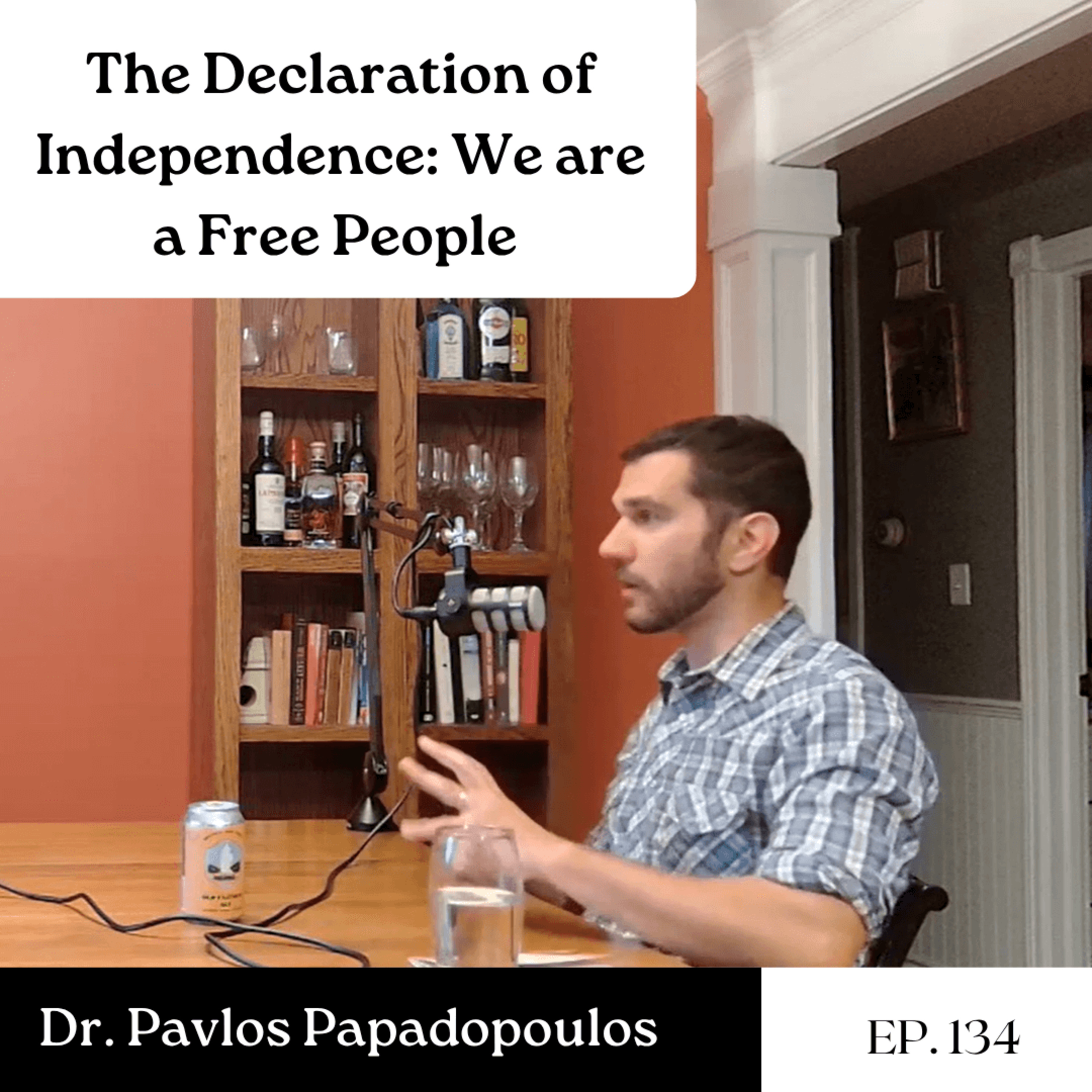 The Green Dragon PodcastThe Declaration of Independence: We are a Free People - Dr. Pavlos Papadopoulos | The GDP | Ep. 134In 1776, the American People made a Declaration that changed the world: We are a Free People. Dr. Pavlos Papadopoulos does a deep dive with us to understand what our Founding Fathers were saying in this document that made history. Dr. Pavlos eloquently articulates what the main arguments of the Declaration mean and how we apply them as the American people. Towards the end of the conversation, we then discuss the tension between Israel and Iran--some fascinating thoughts there. We hope you enjoy this conversation. We can't wait to have Dr. Pavlos back for a future episode. 2025-07-042h 05
The Green Dragon PodcastThe Declaration of Independence: We are a Free People - Dr. Pavlos Papadopoulos | The GDP | Ep. 134In 1776, the American People made a Declaration that changed the world: We are a Free People. Dr. Pavlos Papadopoulos does a deep dive with us to understand what our Founding Fathers were saying in this document that made history. Dr. Pavlos eloquently articulates what the main arguments of the Declaration mean and how we apply them as the American people. Towards the end of the conversation, we then discuss the tension between Israel and Iran--some fascinating thoughts there. We hope you enjoy this conversation. We can't wait to have Dr. Pavlos back for a future episode. 2025-07-042h 05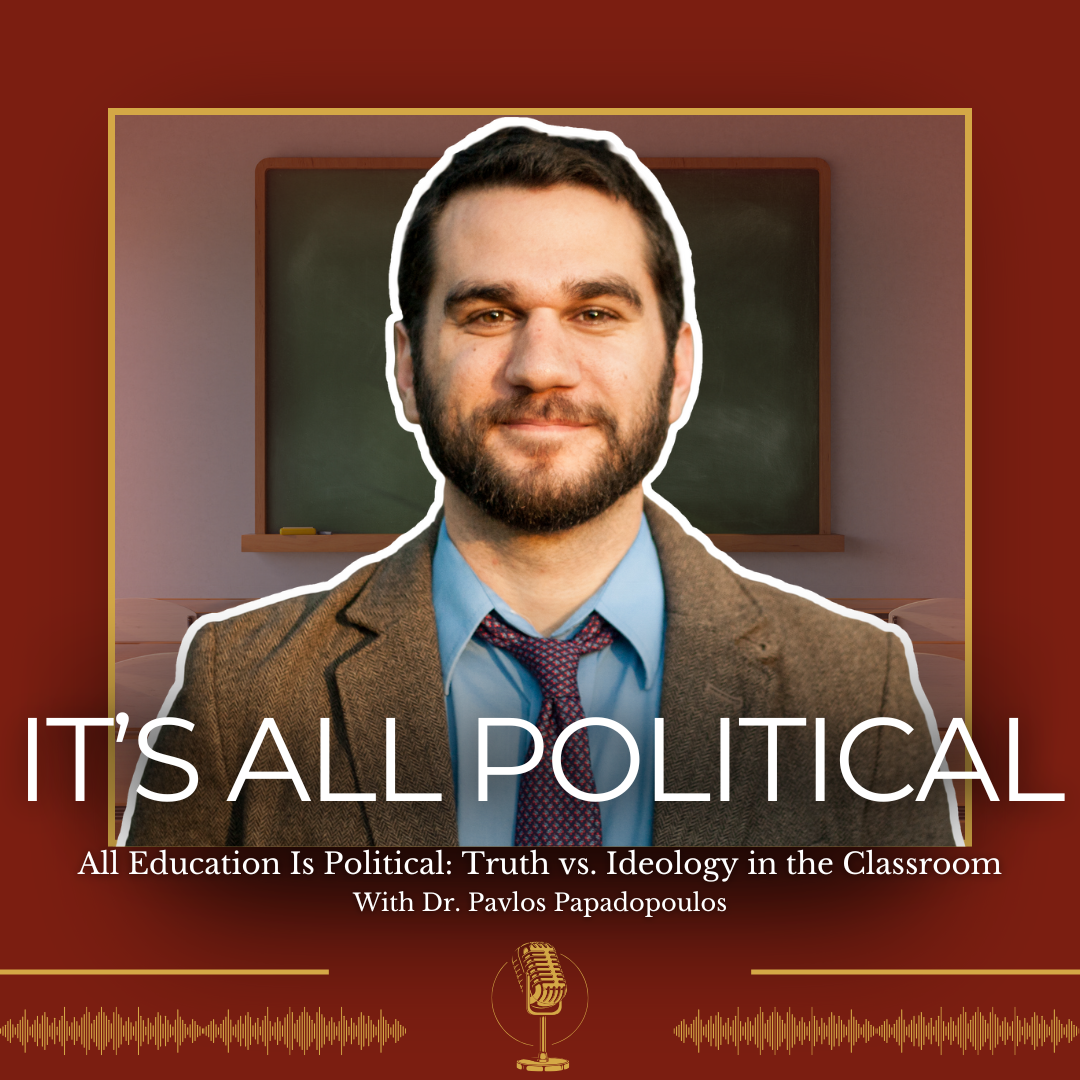 RED-C RoundupAll Education Is Political: Truth vs. Ideology in the Classroom - 383Is neutrality in education possible? In this episode of RED-C Roundup, Deacon Mike Beauvais interviews Dr. Pavlos Papadopoulos, Associate Professor of Humanities at Wyoming Catholic College, about his provocative article, "All Education is Political." They explore the moral and political nature of education, the difference between doctrine and ideology, and how Christian principles can guide us to form students in truth and virtue. Learn how education shapes society and why neutrality is not the answer.
#catholicpodcast #catholic #education #politics #philosophy
"All Education is Political" Article: https://tomklingenstein.com/all-education-is-political/ Dr. Papadopoulos' Substack: https://pavloslpapadopoulos.substack.com/2025-01-0342 min
RED-C RoundupAll Education Is Political: Truth vs. Ideology in the Classroom - 383Is neutrality in education possible? In this episode of RED-C Roundup, Deacon Mike Beauvais interviews Dr. Pavlos Papadopoulos, Associate Professor of Humanities at Wyoming Catholic College, about his provocative article, "All Education is Political." They explore the moral and political nature of education, the difference between doctrine and ideology, and how Christian principles can guide us to form students in truth and virtue. Learn how education shapes society and why neutrality is not the answer.
#catholicpodcast #catholic #education #politics #philosophy
"All Education is Political" Article: https://tomklingenstein.com/all-education-is-political/ Dr. Papadopoulos' Substack: https://pavloslpapadopoulos.substack.com/2025-01-0342 min Ascend - The Great Books PodcastThe Odyssey Book Thirteen: Ithaca at Last with Dr. PapadopoulosDcn. Garlick and Adam Minihan are joined by Dr. Pavlos Papadopoulos of Wyoming Catholic College to discuss BOOK THIRTEEN of the Odyssey. Check out thegreatbookspodcast.com for more. From our guide: 73. What happens in book thirteen?King Alcinous makes good on his promise and sends Odysseus back to Ithaca (13.108). Odysseus sleeps the whole way home (13.91), and the Phaeacians lay a sleeping Odysseus on the beach and leave (13.133). Poseidon, meanwhile, convinces Zeus to punish the Phaeacians for their hospitality and aid of Odysseus (13.142). Back in Ithaca, Odysseus awakes and fears he’s been hoo...2024-10-011h 25
Ascend - The Great Books PodcastThe Odyssey Book Thirteen: Ithaca at Last with Dr. PapadopoulosDcn. Garlick and Adam Minihan are joined by Dr. Pavlos Papadopoulos of Wyoming Catholic College to discuss BOOK THIRTEEN of the Odyssey. Check out thegreatbookspodcast.com for more. From our guide: 73. What happens in book thirteen?King Alcinous makes good on his promise and sends Odysseus back to Ithaca (13.108). Odysseus sleeps the whole way home (13.91), and the Phaeacians lay a sleeping Odysseus on the beach and leave (13.133). Poseidon, meanwhile, convinces Zeus to punish the Phaeacians for their hospitality and aid of Odysseus (13.142). Back in Ithaca, Odysseus awakes and fears he’s been hoo...2024-10-011h 25 Hale Institute PodcastEpisode 20: Of Regimes & Politics (feat. Pavlos Papadopoulos)Timon is joined by Pavlos Papadopoulos, professor at Wyoming Catholic College, for a wide-ranging discussion of history, politics, and America.
X (Twitter): @pleonidasp
2024-08-231h 07
Hale Institute PodcastEpisode 20: Of Regimes & Politics (feat. Pavlos Papadopoulos)Timon is joined by Pavlos Papadopoulos, professor at Wyoming Catholic College, for a wide-ranging discussion of history, politics, and America.
X (Twitter): @pleonidasp
2024-08-231h 07 The Green Dragon PodcastCourse Correction: Redirecting America with our Fundamental Principles - Dr. Pavlos Papadopoulos | Ep. 75
We are delighted to welcome Dr. Pavlos Papadopoulos on the Green Dragon Podcast. Dr. Papadopoulos brings a rare depth of knowledge in political science, philosophy, and the humanities to the discussion of modern society. Join us for a conversation as we discuss America as an empire, Trump, presidents, pivotal points in American history, and more.
Resources:
Linkedin Profile: https://www.linkedin.com/in/pavlos-papadopoulos-7a979a48/
Wyoming Catholic College Faculty: https://wyomingcatholic.edu/person/pavlos-papadopoulos-ph-d/
Green Dragon Channels:
Spo...2024-07-172h 31
The Green Dragon PodcastCourse Correction: Redirecting America with our Fundamental Principles - Dr. Pavlos Papadopoulos | Ep. 75
We are delighted to welcome Dr. Pavlos Papadopoulos on the Green Dragon Podcast. Dr. Papadopoulos brings a rare depth of knowledge in political science, philosophy, and the humanities to the discussion of modern society. Join us for a conversation as we discuss America as an empire, Trump, presidents, pivotal points in American history, and more.
Resources:
Linkedin Profile: https://www.linkedin.com/in/pavlos-papadopoulos-7a979a48/
Wyoming Catholic College Faculty: https://wyomingcatholic.edu/person/pavlos-papadopoulos-ph-d/
Green Dragon Channels:
Spo...2024-07-172h 31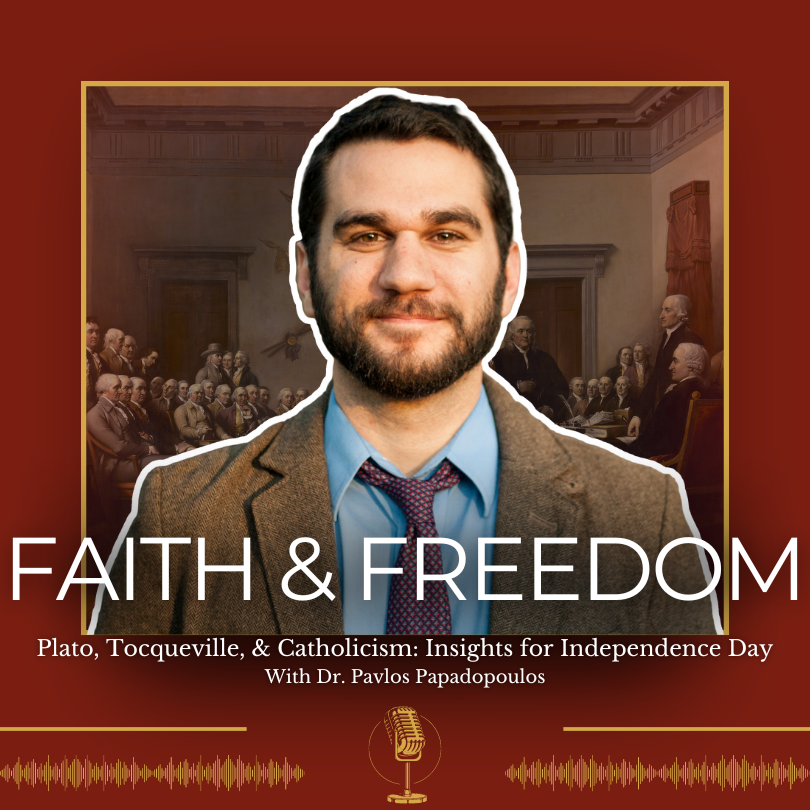 RED-C RoundupPlato, Tocqueville, & Catholicism: Insights for Independence Day with Dr. Papadopoulos - 363Join Deacon Mike Beauvais and guest Dr. Pavlos Papadopoulos in this captivating episode of RED-C Roundup as they delve into the profound connections between the founding of the United States, Catholic faith, and classical political philosophy. Recorded on July 3rd, 2024, this episode explores the political and spiritual landscape in anticipation of Independence Day.
Dr. Papadopoulos, a political philosophy professor at Wyoming Catholic College, shares his journey from a secular upbringing to embracing the Catholic faith. The conversation weaves through insights from Plato's, Republic, and Alexis de Tocqueville's, Democracy in America, highlighting their relevance to modern American politics...2024-07-0342 min
RED-C RoundupPlato, Tocqueville, & Catholicism: Insights for Independence Day with Dr. Papadopoulos - 363Join Deacon Mike Beauvais and guest Dr. Pavlos Papadopoulos in this captivating episode of RED-C Roundup as they delve into the profound connections between the founding of the United States, Catholic faith, and classical political philosophy. Recorded on July 3rd, 2024, this episode explores the political and spiritual landscape in anticipation of Independence Day.
Dr. Papadopoulos, a political philosophy professor at Wyoming Catholic College, shares his journey from a secular upbringing to embracing the Catholic faith. The conversation weaves through insights from Plato's, Republic, and Alexis de Tocqueville's, Democracy in America, highlighting their relevance to modern American politics...2024-07-0342 min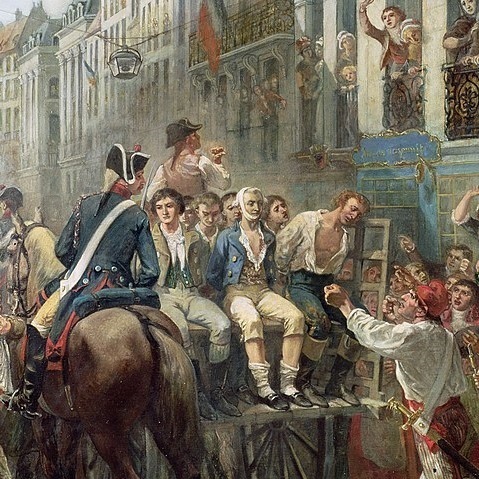 The After Dinner ScholarOn the French Revolution with Dr. Pavlos PapadopoulosObserving the French Revolution, British Member of Parliament, Edmund Burke, noted, “But what is liberty without wisdom and without virtue? It is the greatest of all possible evils; for it is folly, vice, and madness, without tuition or restraint.”
Over the past few weeks, our Wyoming Catholic College juniors have been considering the French Revolution with their professor Dr. Pavlos Papadopoulos.
2024-03-1216 min
The After Dinner ScholarOn the French Revolution with Dr. Pavlos PapadopoulosObserving the French Revolution, British Member of Parliament, Edmund Burke, noted, “But what is liberty without wisdom and without virtue? It is the greatest of all possible evils; for it is folly, vice, and madness, without tuition or restraint.”
Over the past few weeks, our Wyoming Catholic College juniors have been considering the French Revolution with their professor Dr. Pavlos Papadopoulos.
2024-03-1216 min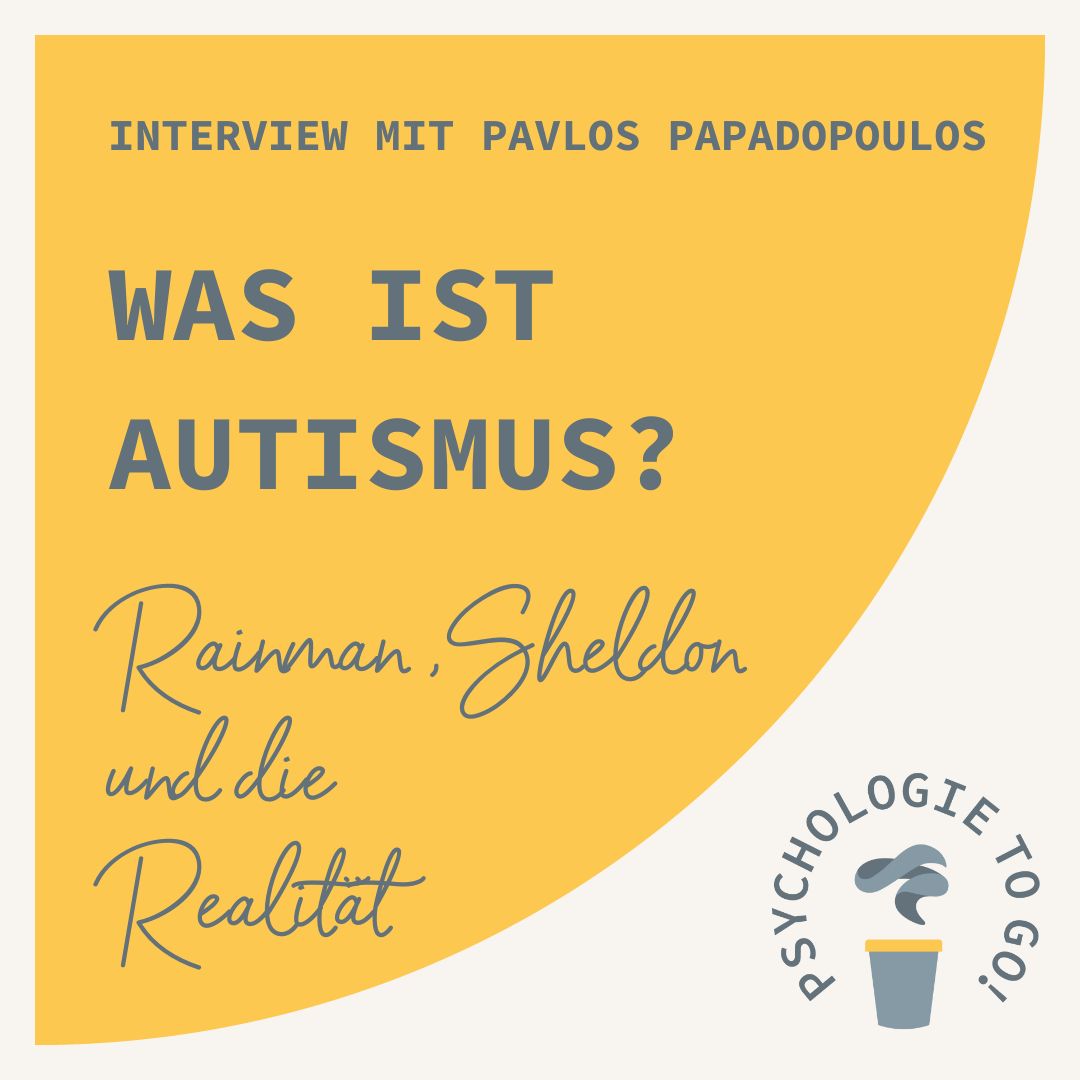 Psychologie to go!Was ist Autismus? Rainman, Sheldon und die RealitätInterview mit Pavlos Papadopoulos
In dieser Episode beleuchten wir das Autismus-Spektrum, und räumen mit populären Klischees auf. Der Experte Pavlos Papadopoulos gibt Einblicke in die Symptome, spricht über Herausforderungen im Alltag und den Einfluss auf soziale Interaktionen, ohne dabei die individuellen Stärken außer Acht zu lassen. Kann eine einzige Podcastfolge der Vielfalt und Tiefe des Autismus-Spektrums Rechnung tragen? Nein - natürlich nicht! Weitere Infos findest zu hier:
Pavlos Papadopoulos: http://www.linkedin.com/in/pavlos-papadopoulos-autism-expert
Das ATZ In Köln: https://www.autismus-koeln.de/
https://www.autismus.de/was-ist-autismus.html
Das Buch "Schatte...2024-02-1848 min
Psychologie to go!Was ist Autismus? Rainman, Sheldon und die RealitätInterview mit Pavlos Papadopoulos
In dieser Episode beleuchten wir das Autismus-Spektrum, und räumen mit populären Klischees auf. Der Experte Pavlos Papadopoulos gibt Einblicke in die Symptome, spricht über Herausforderungen im Alltag und den Einfluss auf soziale Interaktionen, ohne dabei die individuellen Stärken außer Acht zu lassen. Kann eine einzige Podcastfolge der Vielfalt und Tiefe des Autismus-Spektrums Rechnung tragen? Nein - natürlich nicht! Weitere Infos findest zu hier:
Pavlos Papadopoulos: http://www.linkedin.com/in/pavlos-papadopoulos-autism-expert
Das ATZ In Köln: https://www.autismus-koeln.de/
https://www.autismus.de/was-ist-autismus.html
Das Buch "Schatte...2024-02-1848 min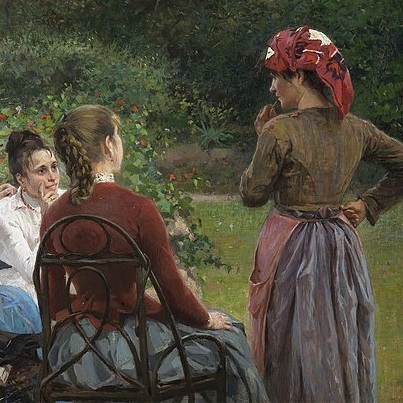 The After Dinner ScholarAristotle on Friendship with Dr. Pavlos Papadopoulos“Social connection,” wrote U.S. Surgeon General Dr. Vivek Murthy in his May 2023 “Advisory on our Epidemic of Loneliness and Isolation,” “is a fundamental human need, as essential to survival as food, water, and shelter. Throughout history, our ability to rely on one another has been crucial to survival.”
That may come as news to many modern Americans, but back in the fourth century BC Aristotle would have told you the same things. Friendship, he wrote in his Nichomachean Ethics, “is not only a necessary thing but a splendid one. We praise those who love their friends, and the possess...2024-01-0215 min
The After Dinner ScholarAristotle on Friendship with Dr. Pavlos Papadopoulos“Social connection,” wrote U.S. Surgeon General Dr. Vivek Murthy in his May 2023 “Advisory on our Epidemic of Loneliness and Isolation,” “is a fundamental human need, as essential to survival as food, water, and shelter. Throughout history, our ability to rely on one another has been crucial to survival.”
That may come as news to many modern Americans, but back in the fourth century BC Aristotle would have told you the same things. Friendship, he wrote in his Nichomachean Ethics, “is not only a necessary thing but a splendid one. We praise those who love their friends, and the possess...2024-01-0215 min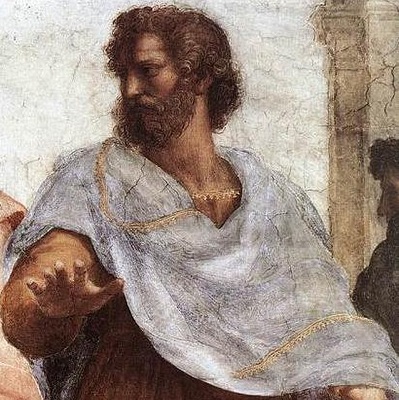 The After Dinner ScholarAristotle’s ”Nicomachean Ethics” with Dr. Pavlos Papadopoulos“Every art and every investigation, and similarly every action and pursuit,” wrote Aristotle at the beginning of his book on ethics, “is considered to aim at some good. Hence the good has rightly been defined as ‘that at which all things aim’.”
We all, Aristotle contends, aim at what we believe is the good. But how do we know what is truly good? And how is it possible as he tells us, that the way to aim at the good has to do with politics?
Dr. Pavlos Papadopoulos is reading Aristotle’s Nicomachean Ethics with our Wyoming Ca...2023-09-1916 min
The After Dinner ScholarAristotle’s ”Nicomachean Ethics” with Dr. Pavlos Papadopoulos“Every art and every investigation, and similarly every action and pursuit,” wrote Aristotle at the beginning of his book on ethics, “is considered to aim at some good. Hence the good has rightly been defined as ‘that at which all things aim’.”
We all, Aristotle contends, aim at what we believe is the good. But how do we know what is truly good? And how is it possible as he tells us, that the way to aim at the good has to do with politics?
Dr. Pavlos Papadopoulos is reading Aristotle’s Nicomachean Ethics with our Wyoming Ca...2023-09-1916 min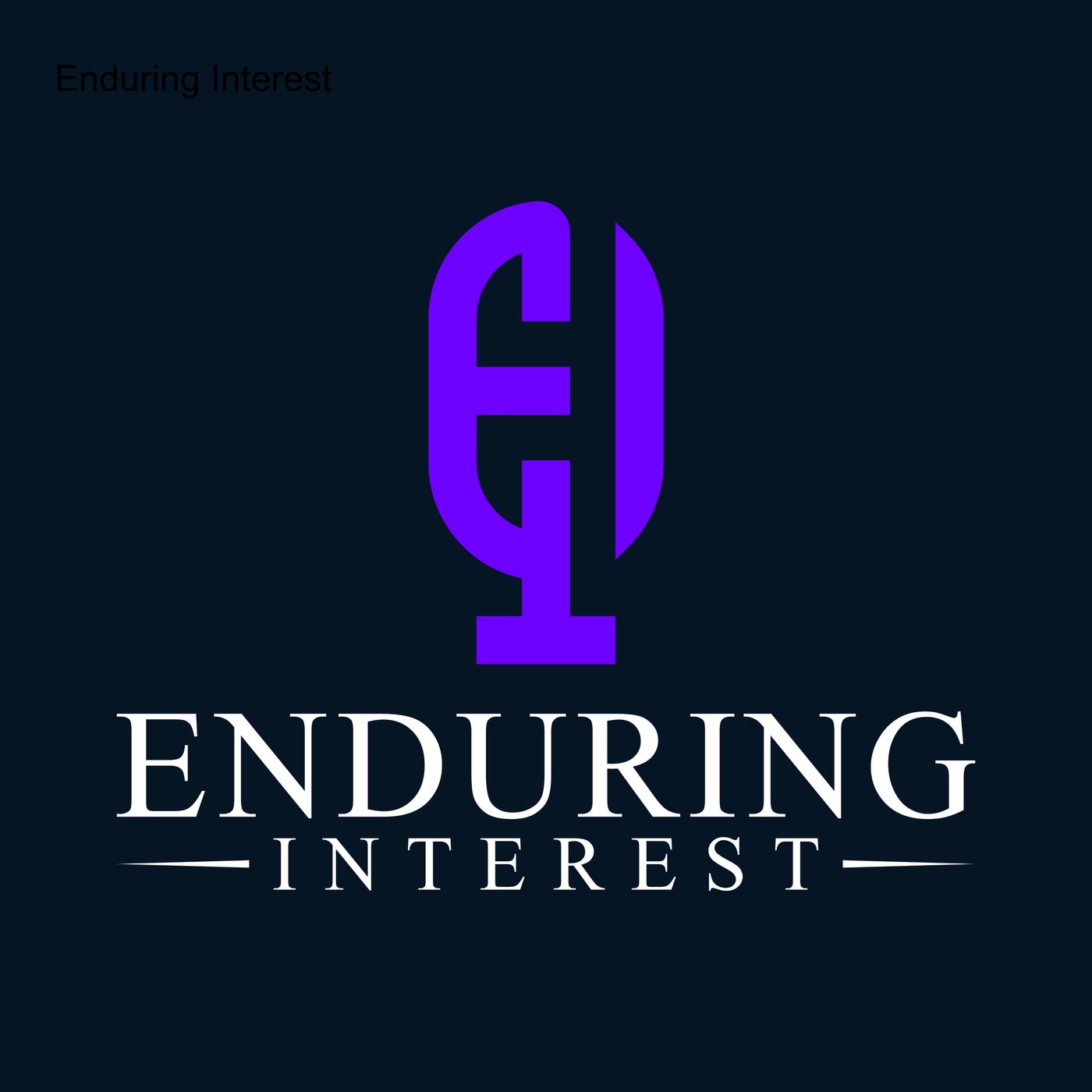 Enduring InterestLIBERAL EDUCATION #3: Pavlos Papadopoulos on Eva Brann’s Paradoxes of Education in a RepublicTo lead into the next season of Enduring Interest, we're re-releasing our first two seasons, covering totalitarianism and ideology and liberal education. We'll be back on September 8 with a new season covering free speech and censorship. This month we’re pleased to present a conversation on Eva Brann’s book Paradoxes of Education in a Republic. Brann serves as a tutor at St. John’s College—she’s the author of many books and Paradoxes was published in 1979. Our guest is Pavlos Papadopoulos—himself a graduate of St. John’s and now an assistant professor of humanities at Wyoming Catholic College. Brann’...2023-08-211h 10
Enduring InterestLIBERAL EDUCATION #3: Pavlos Papadopoulos on Eva Brann’s Paradoxes of Education in a RepublicTo lead into the next season of Enduring Interest, we're re-releasing our first two seasons, covering totalitarianism and ideology and liberal education. We'll be back on September 8 with a new season covering free speech and censorship. This month we’re pleased to present a conversation on Eva Brann’s book Paradoxes of Education in a Republic. Brann serves as a tutor at St. John’s College—she’s the author of many books and Paradoxes was published in 1979. Our guest is Pavlos Papadopoulos—himself a graduate of St. John’s and now an assistant professor of humanities at Wyoming Catholic College. Brann’...2023-08-211h 10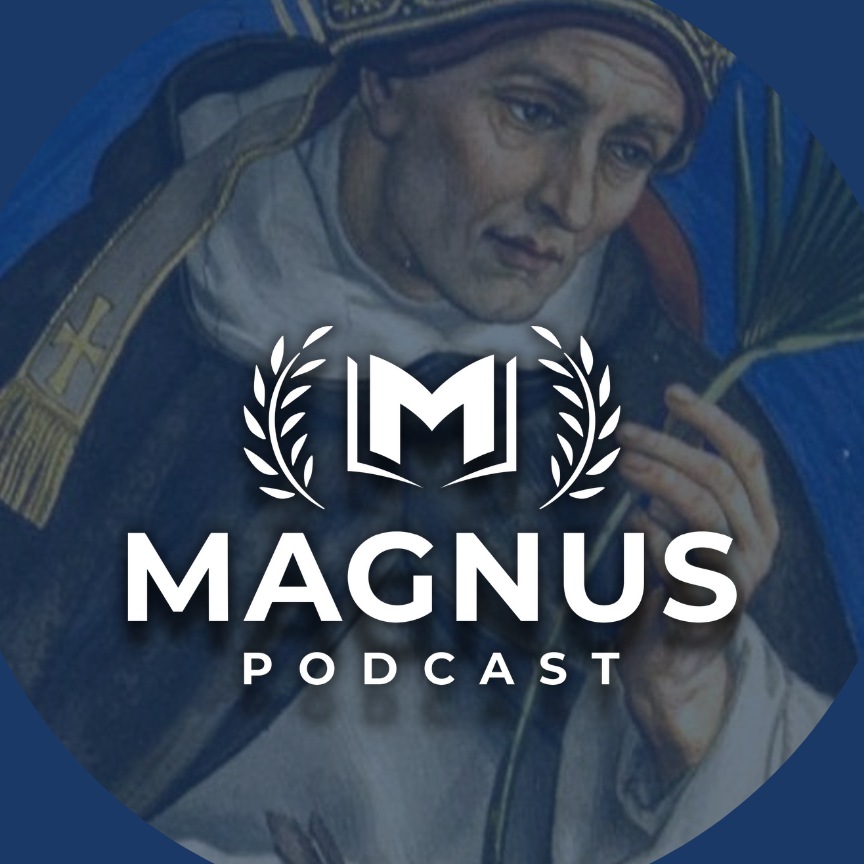 Magnus Podcast: Conversations from the Catacombs of Liberal EducationEp. 086 - On Plato’s Republic
"What is the best way of life for a human being?" The Republic is the most complete attempt by Plato to articulate and answer this question. It is characteristic of Plato that, in the Republic, questions about human happiness ultimately cannot be separated from questions of education, of the nature of the city, of the various forms of government, of the structure of the human soul, and of the character of the gods and being itself.
.
This week, we wrapped up an 8 week summer course on this very topic with Sr. Fellow Dr. Pavlos Papadopoulos. We now p...2023-07-2751 min
Magnus Podcast: Conversations from the Catacombs of Liberal EducationEp. 086 - On Plato’s Republic
"What is the best way of life for a human being?" The Republic is the most complete attempt by Plato to articulate and answer this question. It is characteristic of Plato that, in the Republic, questions about human happiness ultimately cannot be separated from questions of education, of the nature of the city, of the various forms of government, of the structure of the human soul, and of the character of the gods and being itself.
.
This week, we wrapped up an 8 week summer course on this very topic with Sr. Fellow Dr. Pavlos Papadopoulos. We now p...2023-07-2751 min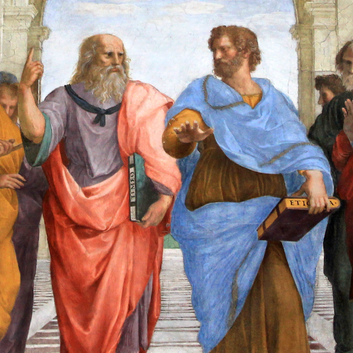 The After Dinner ScholarThe Ancient and Modern Challenges of Technology--Ancient Greek Wisdom by Dr. Pavlos PapadopoulosIn the Phaedrus, Plato wrote about writing that, “it will create forgetfulness in the learners’ souls, because they will not use their memories, they will trust to external written characters and not remember of themselves.”
It seems almost beyond believing that as we worry about technologies such as artificial intelligence and smart phones, Plato considered and rejected the new technology of writing things down on paper. It’s evidence that for millennia, we humans have been inventing new things and debating about whether or not they are or are not useful—or even safe.
At the 2023 W...2023-06-2035 min
The After Dinner ScholarThe Ancient and Modern Challenges of Technology--Ancient Greek Wisdom by Dr. Pavlos PapadopoulosIn the Phaedrus, Plato wrote about writing that, “it will create forgetfulness in the learners’ souls, because they will not use their memories, they will trust to external written characters and not remember of themselves.”
It seems almost beyond believing that as we worry about technologies such as artificial intelligence and smart phones, Plato considered and rejected the new technology of writing things down on paper. It’s evidence that for millennia, we humans have been inventing new things and debating about whether or not they are or are not useful—or even safe.
At the 2023 W...2023-06-2035 min Magnus Podcast: Conversations from the Catacombs of Liberal EducationEp. 079 - Much Ado about a KingAcross the sea, Charles III has just been coronated King of England and much ado was made in his and his country’s honor.
On our homeland, America is, as always, in the throes of her own democratic controversies.
Now on the podcast, we asked Dr’s Pavlos Papadopoulos and Joseph Pearce to discuss this question: Democracy or Monarchy: Is one the better form of government? You will want to listen to this conversation.
Just announced: Dr. Papadopoulos will be teaching a course for us this summer on Plato’s Republic! Learn more!
More ...2023-05-121h 14
Magnus Podcast: Conversations from the Catacombs of Liberal EducationEp. 079 - Much Ado about a KingAcross the sea, Charles III has just been coronated King of England and much ado was made in his and his country’s honor.
On our homeland, America is, as always, in the throes of her own democratic controversies.
Now on the podcast, we asked Dr’s Pavlos Papadopoulos and Joseph Pearce to discuss this question: Democracy or Monarchy: Is one the better form of government? You will want to listen to this conversation.
Just announced: Dr. Papadopoulos will be teaching a course for us this summer on Plato’s Republic! Learn more!
More ...2023-05-121h 14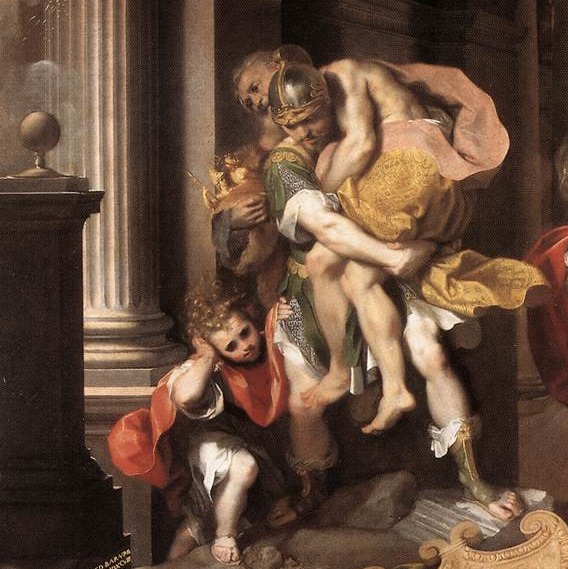 The After Dinner ScholarCaesar, Virgil, and The Aeneid with Dr. Pavlos PapadopoulosWhen Aeneas visits the underworld in Virgil's Aeneid, he sees great heroes who have died and great heroes yet to be born.
Here is Caesar, and all the offspring
of Julus destined to live under the pole of heaven.
This is the man, this is him, whom you so often hear
promised you, Augustus Caesar, son of the Deified,
who will make a Golden Age again in the fields
where Saturn once reigned, and extend the empire beyond
the Libyans and the Indians....”
It...2022-12-1322 min
The After Dinner ScholarCaesar, Virgil, and The Aeneid with Dr. Pavlos PapadopoulosWhen Aeneas visits the underworld in Virgil's Aeneid, he sees great heroes who have died and great heroes yet to be born.
Here is Caesar, and all the offspring
of Julus destined to live under the pole of heaven.
This is the man, this is him, whom you so often hear
promised you, Augustus Caesar, son of the Deified,
who will make a Golden Age again in the fields
where Saturn once reigned, and extend the empire beyond
the Libyans and the Indians....”
It...2022-12-1322 min The Kevin Roberts ShowEpisode 34 | Pavlos PapadopoulosAmerica’s institutions of education need to be reclaimed both for the sake of students and for the future of the republic. Now is the time for conservatives to go on offense and reclaim the institutions we once trusted to educate and empower future generations, let alone the survival of our civilization.Dr. Pavlos Papadopoulos, assistant professor of humanities at Wyoming Catholic College, sits down with Kevin to discuss why American education systems are in such disarray and unresponsive to the needs of both parents and the country. Pavlos explains the chief differences be...2022-10-0528 min
The Kevin Roberts ShowEpisode 34 | Pavlos PapadopoulosAmerica’s institutions of education need to be reclaimed both for the sake of students and for the future of the republic. Now is the time for conservatives to go on offense and reclaim the institutions we once trusted to educate and empower future generations, let alone the survival of our civilization.Dr. Pavlos Papadopoulos, assistant professor of humanities at Wyoming Catholic College, sits down with Kevin to discuss why American education systems are in such disarray and unresponsive to the needs of both parents and the country. Pavlos explains the chief differences be...2022-10-0528 min Magnus Podcast: Conversations from the Catacombs of Liberal EducationEp. 051 - THREE BEERS - Saving Our DemocracySeason 2 of the Magnus Podcast begins with this very special Three Beers episode with Pavlos Papadopoulos. Listen as John, Larissa, and Pavlos discuss Alexis De Tocqueville's great work, Democracy in America.
Pavlos Papadopoulos is Assistant Professor of Humanities at Wyoming Catholic College. He holds a B.A. in Liberal Arts from St. John’s College, Annapolis, as well as an M.A. and Ph.D. in Politics from the Institute of Philosophic Studies at the University of Dallas. At Wyoming Catholic, his teaching focuses on courses in the great works of literature, history, rhetoric, and political philosophy. He...2022-08-191h 12
Magnus Podcast: Conversations from the Catacombs of Liberal EducationEp. 051 - THREE BEERS - Saving Our DemocracySeason 2 of the Magnus Podcast begins with this very special Three Beers episode with Pavlos Papadopoulos. Listen as John, Larissa, and Pavlos discuss Alexis De Tocqueville's great work, Democracy in America.
Pavlos Papadopoulos is Assistant Professor of Humanities at Wyoming Catholic College. He holds a B.A. in Liberal Arts from St. John’s College, Annapolis, as well as an M.A. and Ph.D. in Politics from the Institute of Philosophic Studies at the University of Dallas. At Wyoming Catholic, his teaching focuses on courses in the great works of literature, history, rhetoric, and political philosophy. He...2022-08-191h 12 Enduring InterestPavlos Papadopoulos on Eva Brann’s Paradoxes of Education in a RepublicThis month we’re pleased to present a conversation on Eva Brann’s book Paradoxes of Education in a Republic. Brann serves as a tutor at St. John’s College—she’s the author of many books and Paradoxes was published in 1979. Our guest is Pavlos Papadopoulos—himself a graduate of St. John’s and now an assistant professor of humanities at Wyoming Catholic College. Brann’s vision of education is a bibliocentric one, rooted in reading the great books. Such an education’s purpose, as Pavlos articulates Brann’s vision, is to take up and read the worlds of knowledge, nature an...2022-01-101h 10
Enduring InterestPavlos Papadopoulos on Eva Brann’s Paradoxes of Education in a RepublicThis month we’re pleased to present a conversation on Eva Brann’s book Paradoxes of Education in a Republic. Brann serves as a tutor at St. John’s College—she’s the author of many books and Paradoxes was published in 1979. Our guest is Pavlos Papadopoulos—himself a graduate of St. John’s and now an assistant professor of humanities at Wyoming Catholic College. Brann’s vision of education is a bibliocentric one, rooted in reading the great books. Such an education’s purpose, as Pavlos articulates Brann’s vision, is to take up and read the worlds of knowledge, nature an...2022-01-101h 10 The Greek PolisFour poems for HMN 201A recitation of the three poems learned in HMN 201, plus a bonus poem:
— Hopkins, "Pied Beauty"
— Shelley, "Ozymandias"
— Lovelace, "To Lucasta, Going to the Wars"
— Hopkins, "As Kingfishers Catch Fire"2020-11-0903 min
The Greek PolisFour poems for HMN 201A recitation of the three poems learned in HMN 201, plus a bonus poem:
— Hopkins, "Pied Beauty"
— Shelley, "Ozymandias"
— Lovelace, "To Lucasta, Going to the Wars"
— Hopkins, "As Kingfishers Catch Fire"2020-11-0903 min The Greek PolisRepublic 7 (Plato's Cave) with John PetersonJohn Peterson and I discuss the allegory of the cave, what it adds to the "ship of state", in what sense life in the cave is "natural", patterns of descent and ascent (and ascent and descent), Socrates's hopes for Glaucon, the status of images and image-making in the Republic, and Platonic heroism. John surprises himself (and me) by proposing that images appeal to us because we desire to be tyrants. Brief appearances are made by Aristophanes, Nietzsche, and Kelly Clarkson.2020-04-2656 min
The Greek PolisRepublic 7 (Plato's Cave) with John PetersonJohn Peterson and I discuss the allegory of the cave, what it adds to the "ship of state", in what sense life in the cave is "natural", patterns of descent and ascent (and ascent and descent), Socrates's hopes for Glaucon, the status of images and image-making in the Republic, and Platonic heroism. John surprises himself (and me) by proposing that images appeal to us because we desire to be tyrants. Brief appearances are made by Aristophanes, Nietzsche, and Kelly Clarkson.2020-04-2656 min The Greek PolisRepublic 5 (and Federalist 10) with Virginia ArberyDr. Virginia Arbery, my friend and colleague at WCC, joins me for a conversation on the three "waves" of Republic 5: sexual equality, communism of women and children, and philosopher-kings. We discuss why these waves should strike us modern Americans as both deeply unfamiliar and strangely familiar. On the one hand, the American regime as founded was designed to control the nefarious effects of faction rather than remove its causes. On the other hand, contemporary progressivism has given us a poor-man's version of the three waves. I make a few lame jokes and Ginny talks about John Wayne.2020-04-2336 min
The Greek PolisRepublic 5 (and Federalist 10) with Virginia ArberyDr. Virginia Arbery, my friend and colleague at WCC, joins me for a conversation on the three "waves" of Republic 5: sexual equality, communism of women and children, and philosopher-kings. We discuss why these waves should strike us modern Americans as both deeply unfamiliar and strangely familiar. On the one hand, the American regime as founded was designed to control the nefarious effects of faction rather than remove its causes. On the other hand, contemporary progressivism has given us a poor-man's version of the three waves. I make a few lame jokes and Ginny talks about John Wayne.2020-04-2336 min The Greek PolisRepublic 4 with Antonio SosaI've stopped recording regular lectures for class, in lieu of seminars, but here, I'm joined by my friend Antonio Sosa, PhD candidate in politics at University of Dallas, for a conversation of book 4 of the Republic. We discuss:
- how Antonio's concern for the suppression of liberty in contemporary Venezuela led him to political philosophy;
- the dramatic opening of book 4; why Socrates' definition of justice might seem disappointing;
- the relation of the noble lie to the wisdom of the rulers;
- how and why Plato is a "flirtatious" author;2020-04-191h 08
The Greek PolisRepublic 4 with Antonio SosaI've stopped recording regular lectures for class, in lieu of seminars, but here, I'm joined by my friend Antonio Sosa, PhD candidate in politics at University of Dallas, for a conversation of book 4 of the Republic. We discuss:
- how Antonio's concern for the suppression of liberty in contemporary Venezuela led him to political philosophy;
- the dramatic opening of book 4; why Socrates' definition of justice might seem disappointing;
- the relation of the noble lie to the wisdom of the rulers;
- how and why Plato is a "flirtatious" author;2020-04-191h 08 The Greek Polis3/31 - Plato, Republic 2I. The burning question: Is being just worth it?
II. Overview of the three parts of book 2
III. 1: Restarting the conversation: Glaucon's challenge, with Adeimantus's support
IV. 2: Founding the "city in speech"
V. 3: Educating the guardians2020-03-3037 min
The Greek Polis3/31 - Plato, Republic 2I. The burning question: Is being just worth it?
II. Overview of the three parts of book 2
III. 1: Restarting the conversation: Glaucon's challenge, with Adeimantus's support
IV. 2: Founding the "city in speech"
V. 3: Educating the guardians2020-03-3037 min The Greek Polis3/26 - Plato, Republic 1The third of three lectures for our first day on the Republic
I. Not only the argument (conversation), but also the action (drama)
II. Cephalus (justice according to an old, fearful man) and Polemarchus (justice according to a young, spirited citizen)
III. Thrasymachus versus Socrates: tyranny or justice?
IV. Socrates as ruler? Socrates as benefactor?2020-03-2624 min
The Greek Polis3/26 - Plato, Republic 1The third of three lectures for our first day on the Republic
I. Not only the argument (conversation), but also the action (drama)
II. Cephalus (justice according to an old, fearful man) and Polemarchus (justice according to a young, spirited citizen)
III. Thrasymachus versus Socrates: tyranny or justice?
IV. Socrates as ruler? Socrates as benefactor?2020-03-2624 min The Greek Polis3/26 - Plato, Republic - Opening sceneThe second of three lectures for our first day on the Republic
I. The significance of the proem and first word in Homeric epic
II. The first word of the Republic: "I went down"
III. The "proem" of the Republic: Socrates's twofold "observation"
IV. The "arrest" of Socrates. What rules, reason or force?2020-03-2617 min
The Greek Polis3/26 - Plato, Republic - Opening sceneThe second of three lectures for our first day on the Republic
I. The significance of the proem and first word in Homeric epic
II. The first word of the Republic: "I went down"
III. The "proem" of the Republic: Socrates's twofold "observation"
IV. The "arrest" of Socrates. What rules, reason or force?2020-03-2617 min The Greek Polis3/26 - Plato, Republic - IntroductionThe first of three lectures for our first day on the Republic
I. How Plato’s Republic rounds out our study of the Greek polis
II. The dramatic context: the end of the Athenian Empire
III. The location of the dialogue
IV. The cast of characters
V. The title of the Republic2020-03-2620 min
The Greek Polis3/26 - Plato, Republic - IntroductionThe first of three lectures for our first day on the Republic
I. How Plato’s Republic rounds out our study of the Greek polis
II. The dramatic context: the end of the Athenian Empire
III. The location of the dialogue
IV. The cast of characters
V. The title of the Republic2020-03-2620 min The Greek Polis3/24 - Aristophanes, LysistrataAn introduction to Aristophanes's Lysistrata.
Note: this lecture begins with a Thucydidean introduction, but don't worry, it's mostly about Aristophanes.2020-03-2122 min
The Greek Polis3/24 - Aristophanes, LysistrataAn introduction to Aristophanes's Lysistrata.
Note: this lecture begins with a Thucydidean introduction, but don't worry, it's mostly about Aristophanes.2020-03-2122 min The Greek PolisA feast of poetryA recitation of the poems learned by Wyoming Catholic College freshmen in their humanities courses this fall and spring:
- Housman, "To an Athlete Dying Young"
- Keats, "On First Looking into Chapman's Homer"
- Wordsworth, "The World is Too Much With Us"
- Hopkins, "God's Grandeur"
- Hopkins, "Spring and Fall"
- Shakespeare, "Sonnet 116"
- Frost, "Stopping by Woods on a Snowy Evening"
- Shakespeare, "What a piece of work is a man"2020-03-1708 min
The Greek PolisA feast of poetryA recitation of the poems learned by Wyoming Catholic College freshmen in their humanities courses this fall and spring:
- Housman, "To an Athlete Dying Young"
- Keats, "On First Looking into Chapman's Homer"
- Wordsworth, "The World is Too Much With Us"
- Hopkins, "God's Grandeur"
- Hopkins, "Spring and Fall"
- Shakespeare, "Sonnet 116"
- Frost, "Stopping by Woods on a Snowy Evening"
- Shakespeare, "What a piece of work is a man"2020-03-1708 min